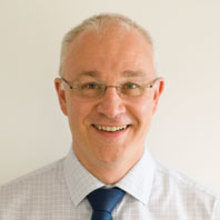From the Chief Executive
Issue: What is life?
10 May 2016 article

When the Divisions met to begin discussing next year’s Annual Conference, it was easy to see the importance of microbiology just by looking at the day’s newspapers – three front pages were about the fight against malaria, the Zika virus, and the human microbiome. This brought home to me how crucial it is for our community’s expert microbiological knowledge to feed effectively into public and political discussions about how we react to a whole range of major challenges.
One of the four pillars of the Microbiology Society’s strategy is ‘engagement and knowledge transfer’. That means we work hard to support members and share your unique, deep and broad specialist understanding with a wide range of people. One of those audiences is the policy world – MPs and Lords in the UK, TDs in Ireland, civil servants, government ministers, European officials and parliamentarians, and politicians and administrators in Holyrood, Cardiff and Stormont.
These groups have different working practices and timescales from researchers, so communicating with them can be challenging, especially when you are busy with your daily lives. The Society fosters communities and channels of communication to empower your voices to be heard in policy debates.
Following workshops with members around the country, Council agreed a policy roadmap that starts from the overarching grand challenge of climate change and sustainability, and then focuses on two major challenges where microbiology has a big role – food security and infectious disease. Using this framework, and with a very small, highly focused team of staff, we can have a real impact by concentrating your knowledge and the valuable time you are able to devote to policy work.
One way we do this is by responding to governments’ and parliaments’ agendas, such as the response we made (jointly with the Society for Applied Microbiology) to a UK parliamentary inquiry into the lessons learned from last year’s Ebola outbreak. This topic was the subject of a debate at our Annual Conference and a number of fascinating papers in the Journal of General Virology. Our response, which drew on the expertise of members including Ed Wright and Ian Goodfellow, was quoted repeatedly in the Parliamentary Committee’s final report.
It is important to respond to such opportunities, but it is also crucial that the scientific community sets the agenda, drawing attention to issues that have not yet reached the notice of key decision makers and influencers. During 2015, the Society published briefings and position statements on energy from food waste, emerging zoonotic diseases, microbiology and climate change, food security from the soil microbiome, animal research and open access. Again, they were based on the expertise of members including Robin Sen, Penny Hirsh and Thorunn Helgason. They prompted questions in the Irish and UK Parliaments, quotations in debates in the House of Lords, face-to-face meetings with members of the policy community, and a sheaf of letters and requests for more information from members of the parliaments and assemblies in London, Dublin, Belfast, Edinburgh and Cardiff.
These activities are only a fraction of what the Society does in the policy world on your behalf, overseen by a Policy Committee. They are augmented by a whole variety of events and partnerships that offer members the chance to influence policy and to learn more about the policy process. These include sitting on external committees, attending Parliamentary events, blogging, and helping to draft briefings, position statements, responses to consultations and other documents. These are things that it is often hard for active research scientists to get involved with, and the Microbiology Society’s structures make it possible for more of you to participate. One recent example was the Voice of the Future event, at which members Rebecca McHugh, Benjamin Johns, Andrew Day and Rachel Edgar were able to quiz MPs and ministers directly on important issues.
Please get in touch if you want to know more about what the Society does in this area, or how to use your microbiological expertise to help strengthen local, national and international policies.
PETER COTGREAVE
Chief Executive
[email protected]
